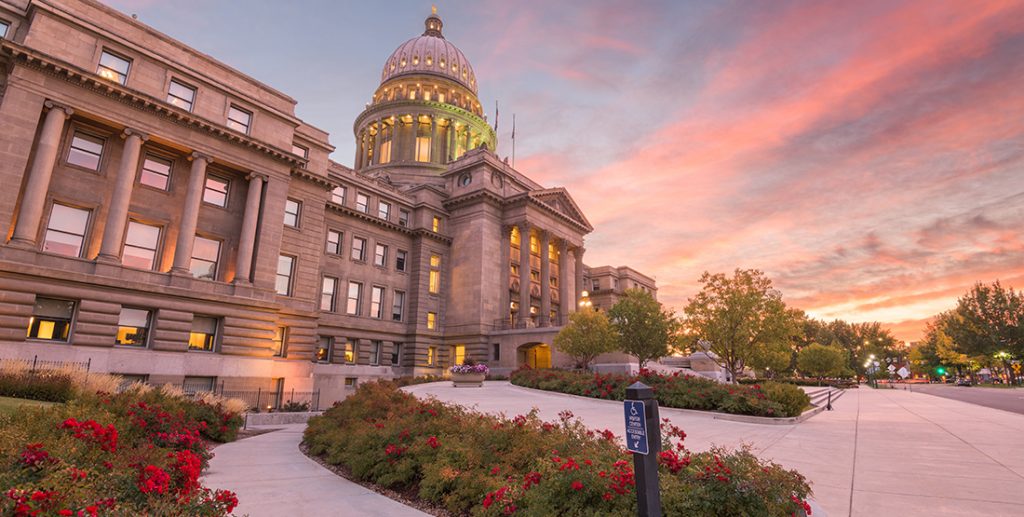
Three takeaways from Idaho’s special session
By Dustin Hurst
The legislative circus has ended and the clowns, elephants, and ringmasters have left town. The 2020 legislative special session concluded when lawmakers finished their business late Wednesday night. Below is a short summary of the action and three takeaways for conservatives who want to win policy battles.
The background. Earlier this month, Gov. Brad Little called a special session to deal with election and Covid-19 liability issues that have popped up during the pandemic. Lawmakers opened the session Monday, Aug. 25 and immediately dove into the two issues, plus a few more.
While I could discuss the antics that occurred this week in the Capitol, I won’t — because the legacy media has that topic adequately covered.
Instead, let’s focus on substance: What lawmakers did, and what conservatives need to know about the 2021 legislation session. Keep in mind that legislators who survive the November elections will return to the Capitol in roughly 130 days.
What lawmakers accomplished. Not much, really. Legislators passed a few measures, including a bill to give large and small businesses immunity from lawsuits that might arise out of the pandemic. In short, customers won’t be able to sue a business if they believe they contracted Coronavirus at that establishment. Such a case is difficult to prove anyway, but a majority of lawmakers believe the bill will save businesses legal fees and other headaches.
Lawmakers also passed small tweaks to absentee ballot deadlines, as well as a bill that mandates in-person voting in the state. The House passed a resolution that urges the governor to take extra measures to open the polls to in-person voting this fall. The resolution, which suggests training the Idaho National Guard to work the polls if the state lacks enough workers, has no force of law.
The Idaho Senate passed its own resolution, a measure that politely asks the governor to end the state of emergency declaration. The House had previously passed a stronger measure that would have forced an end to the declaration, but the Senate unanimously killed that.
What lawmakers didn’t do. Thousands of Idaho families are grappling with the so-called new normal in education: Zoom classrooms, at-home instruction, or some hybrid model. Lawmakers could have done something to aid those families, including using federal CARES Act dollars to help families purchase school supplies, but lawmakers punted.
My three takeaways from the special session are:
Conservatives, do your homework. I’m reluctant to sound like your 11th-grade Algebra teacher, but conservatives need to do their homework. In the weeks preceding the session, too many conservatives missed the mark about what the business immunity bill would do. Lots of otherwise intelligent people worried that the Legislature was convening to grant special immunity protection to Gov. Brad Little. Problem is, the governor and other elected officials already enjoy such protection in state law.
Though conservatives busily worked themselves into a tizzy over a bill that didn’t exist, special interests locked arms to write and support an immunity bill that more or less would have coerced businesses into enforcing government mask mandates and other existing or yet-to-come restrictions.
Thankfully, clear-eyed conservative activists, led by the Idaho Freedom Foundation, rallied and prevented that measure from going forward. The battle could have been won at an earlier stage had conservatives done their homework, asked a few important questions, and focused on real problems.
The people can win. As I mentioned in the previous paragraph, people killed the Big Government immunity bill. Special interest groups, including the state’s powerful big business lobby, went all out to ram their preferred immunity bill through the Statehouse. They failed miserably.
Sadly, conservative uprisings are too few and far between at the Idaho Capitol. Through my years observing Idaho’s political process, there have only been a handful of times when conservatives showed up in droves to defeat bad bills or promote good ones. Liberals, on the other hand, have the home-field advantage of sorts, as the Statehouse sits in one of the bluest cities in the state.
To beat back Big Government’s creep, conservative must demonstrate the same energy during the regular session.
The next session is going to be a brawl. Idaho lawmakers had tons on the plate before the pandemic: property tax reform, grocery tax repeal, Common Core repeal, and much, much more. The Legislature’s plate now overflows with necessary legislative fixes that must come as a result of state code not anticipating a pandemic and ham-handed government responses to it.
And, thanks to a recent U.S. Supreme Court decision, Idaho lawmakers are now able to pursue school choice legislation that would tremendously benefit Idaho’s K-12 students. This sets up a possible once-in-a-generation battle between parents and those who would protect the existing system to the benefit of teachers unions.
Other items the Legislature could tackle during the next session: health department authority; collective bargaining privileges; legislative power to call the Legislature back into session; property taxes; spending authority when Idaho receives federal money; and local government regulations.
Suffice it to say, special interests will be out in force to protect their power, authority, and special deals. Conservatives must prepare now.
We will certainly keep an eye on these significant policy issues for you. To stay engaged, I encourage you to join IFF’s new text action group. Select “Idaho Freedom Index” in the box below to get timely legislative updates sent straight to your mobile phone at no cost to you.
From idahofreedom.org